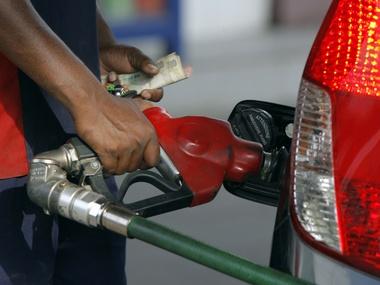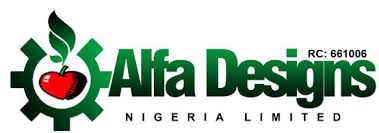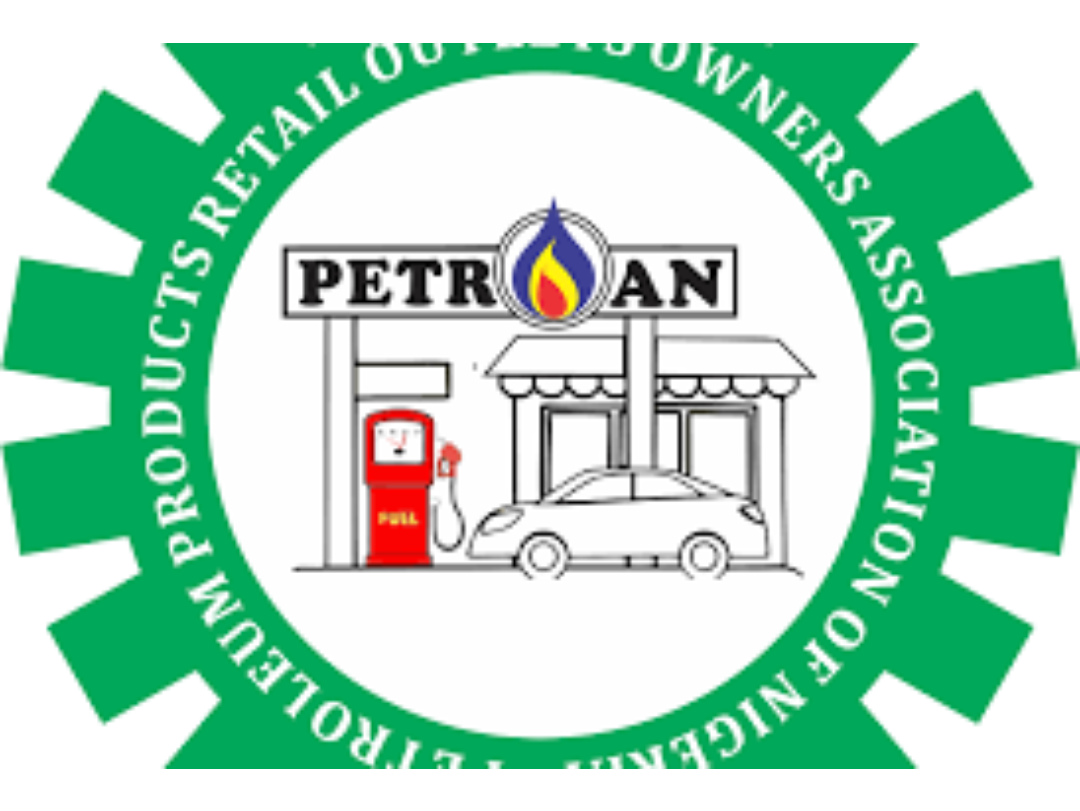Oil & Gas
Refinery Rehab: Don’t Expect Immediate PMS Price Crash, Experts Tell Nigerians

Some Oil and Gas Experts have said that the coming on stream of both Port Harcourt and Dangote refineries may lead to some marginal reduction in the cost of petroleum products and not a significant price crash.
The experts made this known in an interview on Sunday in Abuja.
According to them, some ancillary costs such as freight and port charges, among others would have been eliminated to achieve the marginal reduction.
The Federal Government had on Dec. 21, announced the mechanical completion and flare start-up of the Port Hacourt Refining Company Limited (PHRC) and the subsequent streaming of its phase two in 2024.
This, according to the Minister of State Petroleum (Oil), Sen.
Heineken Lokpobiri, will herald the commencement of the production of petroleum products after the Christmas break.The PHRC comprised of two refining units, with the old plant having a refining capacity of 60,000 barrels per day (bpd) and the new plant 150,000 bpd, both summing up to 210,000 bpd.
Reacting to the development, an Associate Professor of Energy and Natural Resources, University of Abuja, Olanrewaju Aladeitan, said there should be some marginal reduction in petrol prices as some ancillary cost would have been eliminated.
However, he explained that the price of petroleum products may not come down significantly as to describe it as crashing.
“The price may not come down significantly considering the fact that crude oil and condensates supply for the domestic market under the Petroleum Industry Act is going to be based on a willing supplier and a willing buyer basis.
“And the fact that the supply of crude oil will be commercially negotiated having regard to prevailing international market price for similar grades of crude,” he said.
With this provision, he said there would be no dedicated percentage of crude for local refineries.
“Hence international market price which of course is denominated in dollars will still be the determinant of cost of the crude oil that would be refined.
“So I do not see how the price of Petroleum products will crash,” Aladeitan said.
Also speaking, Mr Yushau Aliyu, an Economic Expert, said reaching to a mechanical test of the refinery after a very long fruitless effort was an indication that part of our refined Premium Motor Spirit (PMS) deficit would be attended.
Aliyu described it as a good signal of recovering in the forex deficit which dominated the dwindling liquidity crisis.
“In addition, the new Nigerian National Petroleum Company Limited (NNPC Ltd.) is responding to the immediate solution for availability of PMS in the economy.
“We are expecting the NNPC Ltd.’s retail stations to reduce their pump price due to absence of landing cost in the short term effects,” he said.
Another oil and gas expert who preferred to remain anonymous said it was obvious that some people in the oil and gas sector were engaged in an act of sabotage.
He frowned at the situation where the government preferred to spend so much, including foreign currency, to import fuel, rather than fix it refineries.
“They claim that the 60,000 barrels capacity refinery in Port Harcourt is back on stream, while the 150,000 barrels capacity will work soon.
“We are waiting to see them work, including that of Warri and Kaduna. When they are put to use, let’s see why fuel prices will not crash,” the expert said.
NAN reports that pump price of PMS has increased to N660 per litre at various fuel stations, while NNPC Ltd.’s retail outlets sell at N617 since the removal of subsidy in May 2023 due to high crude cost and high foreign exchange rate.
The after effect of the removal and high cost of fuel brought untold hardship and suffering on Nigerians due to inflation, increase in goods and services, among others. (NAN)
Oil & Gas
Local Content: Firm Trains Youths on Emissions Management

By Torough David , Abuja
A company, Alfa Designs Nigeria Ltd. (ADNL) has inaugurated a capacity-building programme focused on Green House Gas (GHG) emissions management for young Nigerian graduates.
This is in a strategic effort to promote sustainable development and deepen local participation in Nigeria’s oil and gas sector.
ADNL’s Group Managing Director, Mr Fatai Quadri, in an interview in Lagos on Tuesday, said that the initiative was part of ADNL’s corporate social responsibility and local content strategy.
He said it was aimed at nurturing a new generation of environmental professionals with practical skills to address climate-related challenges.
According to him, the programme seeks to empower Nigerian youths with the expertise needed to contribute both locally and globally to the fight against climate change.
He emphasised the importance of building indigenous capacity in emissions management.
“Our objective is to develop a pool of Nigerian experts, who can lead in managing emissions and offering practical solutions to environmental issues.
“This goes beyond Nigeria; it is about building global competence.
“Delivered through the company’s Centre for Emissions Reduction and Monitoring Solutions (ACFERMS), the training combines theoretical knowledge with field-based practice,” Quadri said.
He said that participants were taught carbon accounting, emissions tracking technologies, regulatory compliance, and environmental policy frameworks.
The ADNL boss said that the programme leveraged global best practices and incorporated tools such as the EyeCGas 2.0 Optical Gas Imaging (OGI) camera.
The camera is used to detect and quantify fugitive emissions from valves, flanges, and fittings in simulated real-world scenarios.
According to Quadri, so far, 13 young graduates have completed the programme, gaining insights into key local and international emissions regulations, including the Nigerian Upstream Petroleum Regulatory Commission guidelines.
“Also, the United States Environmental Protection Agency (USEPA) Appendix K Part 40, UNFCCC GHG Reporting Protocols, and the Oil & Gas Methane Partnership 2.0 Framework.
“ADNL has already achieved 100 per cent compliance with USEPA Appendix K, setting a benchmark for regulatory adherence in the sector,” he added.
Quadri said the company planned to take central control of the GHG management process over the next five years by developing a skilled team, enhancing research capabilities, and providing high-quality emissions data.
“With this foundation, we aim to become the industry leader in Optical Gas Imaging and emissions monitoring,” he said.
He also projected that Nigeria could save significant revenue currently lost to uncontrolled leaks, while ADNL would support oil and gas operators in strengthening asset integrity, eliminating substandard equipment, and improving project reliability.
“This is more than just training; it is the beginning of a movement.
“In five years, we envision a Nigeria with a robust emissions management system, outperforming many of its international counterparts,” Quadri said.
Oil & Gas
PETROAN says Dangote Fuel Plan Threatens Downstream

Petroleum Products Retail Outlets Owners Association of Nigeria (PETROAN) on Monday raised alarm over the plan by Dangote Refinery to start direct nationwide distribution of petrol and diesel.
In a statement issued on Monday, PETROAN spokesperson, Mr Joseph Obele, said the move by Dangote could have consequences on the country’s downstream sector,
According to him, such consequences include widespread job losses and the shutdown of small businesses.
On June 15, Dangote Refinery disclosed its plan to distribute petrol and diesel directly to consumers across Nigeria.
Reacting to this development, PETROAN National President, Dr Billy Gillis-Harry, warned that such strategy could create a monopolistic market structure, stifling competition and threatening thousands of livelihoods in the sector.
“With a production capacity of 650,000 barrels per day, Dangote Refinery should be positioning itself to compete with global refiners rather than engaging in direct distribution within Nigeria’s downstream sector,” Gillis-Harry said.
He stated that this move undermines the survival of independent marketers, truck owners, filling station operators, and modular refinery operators who rely on the existing supply chain structure.
Gillis-Harry noted that Dangote’s dominance could lead to higher fuel prices due to reduced competition and business closures across the fuel retail landscape.
The president said that the situation could also lead to massive job losses among truck drivers, petroleum product suppliers, and station operators
He cautioned that the introduction of 4,000 new Compressed Natural Gas (CNG)-powered tankers by Dangote, which might lower transportation costs, could pose a threat to the jobs of traditional tanker drivers and owners.
“Filling station operators, truck owners, telecom diesel suppliers, and modular refineries are all at risk.
“Dangote’s approach could trigger a pricing penetration strategy aimed at capturing market share and forcing competitors out of the market,” Gillis-Harry added
The PETROAN boss said that Dangote’s market influence might allow for price setting that could disadvantage consumers, noting similar patterns in other industries where the conglomerate operates.
Gillis-Harry, therefore, urged the Executive Director of the Nigerian Midstream and Downstream Petroleum Regulatory Authority (NMDPRA) and the Minister of State for Petroleum Resources to urgently introduce price control mechanisms and enforce fair competition policies.
“Competition must be protected and encouraged to safeguard consumers, preserve jobs, and maintain a healthy petroleum distribution ecosystem,” he stressed. (NAN)
Oil & Gas
NNPC Ltd. Records N5.8bn revenue, N748bn PAT in April

The Nigerian National Petroleum Company Limited (NNPC Ltd.) has announced a revenue of N5.89 billion and a Profit After Tax (PAT) of N748 billion for the month of April.
The NNPC Ltd. disclosed this in its Monthly Report Summary for April, released on Thursday.
The report highlights key statistics, including crude oil and condensate production, natural gas output, revenue, profit after tax and strategic initiatives during the period.
The report said that NNPC Ltd made statutory payments of N4.
22 billion between January and March.According to the report, crude oil and gas figures are provisional and reflect only NNPC Limited’s data.
It said that It excluded volumes of independent operators reported by the Nigerian Upstream Petroleum Regulatory Commission (NUPRC).
“Crude oil and condensate production averaged 1.606 million barrels per day (bpd) in April, while natural gas production was 7.354 million standard cubic feet daily.
“Petrol availability at the NNPC Ltd. retail stations recorded 54 per cent during the month under review, while upstream pipeline reliability was 97 per cent,” it said.
On its strategic efforts, it said that the company was collaborating with Venture Partners to accelerate Sustainable Production Enhancement.
It said that it completed the implementation of relevant presidential directives and Executive Orders for its upstream operations.
The report listed some Technical Interventions on Ajaokuta-Kaduna-Kano (AKK) pipeline and the Obiafu-Obrikom-Oben (OB3) gas pipelin to resolve challenges of River Niger crossings.
It said that the OB3 gas pipeline project was 95 per cent completed in the month, while the AKK pipeline was 70 per cent completed.
The report said that Turnaround Maintenance (TAM) was completed in several Oil Mining Leases (OML), including OML 18, OML 58, OML 118, and OML 133.
On Refineries Status, it said that the Port Harcourt Refinery Company (PHRC), as well as the Warri and Kaduna refineries were currently under review.
According to the report, all financial figures are provisional and unaudited, and all operational and financial data are for April unless indicated otherwise. (NAN)




















